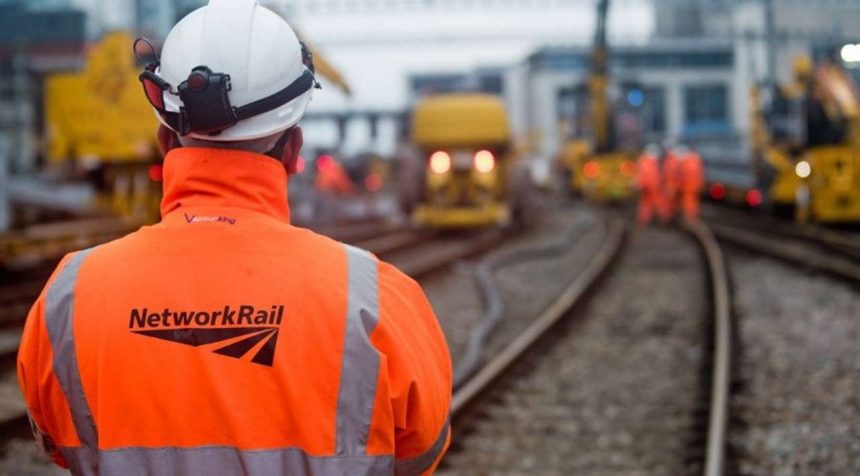A union survey of 977 workers has revealed the extent of the anxiety among Network Rail employees over safety.
The National Union of Rail, Maritime and Transport Workers (RMT) revealed that 96% of Network Rail workers fear a major railway incident is likely in the next few years because of budget cuts.
The Government funding settlement for the five-year Railway Control Period Seven, which lasts from 2024 to 2029, will result in a £1.2bn cut in Network Rail's budget. This has led to an overwhelming majority of its staff fearing accidents and serious safety-related incidents on the railway.
Part of the programme of cuts includes abandoning track renewals for at least the next five years. A number of highly-specialised and skilled jobs will also be lost permanently. This comes as reports of broken rails and other infrastructure defects are rising,
The RMT says that 96% of Network Rail employees have said that the cuts scheduled for the next five years will worsen railway safety, with 77% saying that the measures will ‘substantially worsen rail safety'.
Other key findings from the survey revealed that 77.4% of Network Rail workers consider the railway to be less safe than it was two years ago while 94.3% believe performance and reliability will worsen during the next five-year period.
A number of anonymous comments were made by RMT members working for Network Rail. One suggested that ‘planned cuts have staff morale at an all time low as it's us who maintain the railway and management aren't listening to us about the seriousness of cutting maintenance schedules and diluting skill levels on jobs. It's front line staff that will carry the can for any serious incidents!'
Staffing levels also came in for further criticism with one person saying ‘not enough staff left to complete both faults and maintenance. Maintenance is being prioritised but still goes into backlog. Faults are left for days or weeks sometimes.
Signallers are already complaining about the growing list of outstanding faults.' Another said that there are ‘not enough staff even for the minimum safety maintenance work, using contractors that are not fully qualified for the jobs.'
One even went so far as to suggest that staffing levels were leading to medical problems. They said that ‘less staff, less heads working together on a problem – more pressure on individuals causing them to seek medical help as the pressure to get things done is still the same as before but now with less men. Therefore productivity has taken a dip as the overall work force and work culture has lead to over-stressed employees. Along with a shortage of staff, you can see that how this formula in any industry would be impacted and is not a healthy model.'
Safety issues were also raised with one person revealing that ‘I am a rail testing team leader. Since modernising maintenance has started there have been more broken rails in the last six weeks than we have had in years. That is not just on my route but all over the country. Our training centre . . . is getting broken rails brought to them to for inspection every week now.'
RMT general secretary Mick Lynch said: “These shocking survey results show the real fears of our members on the front line, as the reality of funding cuts to rail becomes clear. These cuts mean Network Rail will not renew a single mile of track for the next five to eight years and the permanent loss of specialist workforce and equipment currently delivering 70% of Britain's track renewals.
“Instead, passengers will experience a planned and deliberate reduction of the railway service as reliance on speed restrictions becomes the norm to mitigate the increased safety risk posed by decrepit rail tracks. We are watching the managed decline of a national asset.
“They must reverse these extremely damaging cuts and move to a genuine public ownership model which sees increased investment year on year and safety for rail workers and user as the number one priority.”
